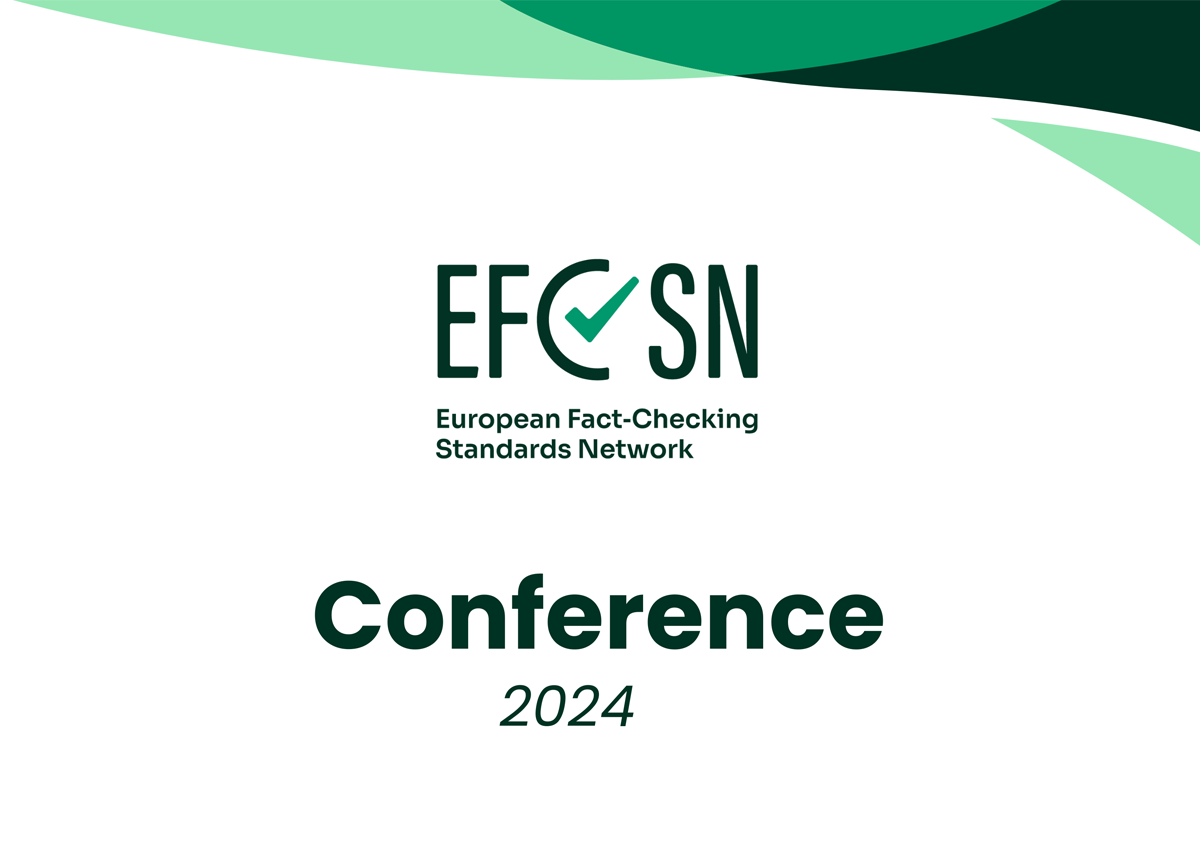EFCSN Conference, Brussels, October 2024
EFCSN Conference, Brussels, October 202430/10/2024

PROMPT was in Brussels on October 29th for the 1st annual conference of the European Fact-Checker Standards Network. A great opportunity to engage with the network – 53 organisations in 31 countries – and discuss how we can best support that community. Some takeways:
The digital space is fragmented yet challenges existing boundaries. Does it make sense to oppose foreign & domestic disinfo? The geographic, thematic or technical mandates and capacities of EU institutions, national regulators and fact-checkers are challenged when it comes to tracking how disinformation circulates, in often subtle reframed nuances, across languages, informational spaces, social platforms, etc. As one participant said about disinfo in his country « it’s never where it happens first ». For research projects like PROMPT, this raises the bar in terms of what needs to be done to develop useful tools that help anticipate and detect disinformation narratives online.
Context matters: probably the most used term at the conference, “context” in the fight against disinformation is multidimensional. It’s what LLMs should and often fail to grasp; it’s knowing how people consume disinformation (or reject it) across time and places; and it’s the foundation thereof for effective pre- or debunking strategies.
There are many things we still don’t know about disinfo: we still don’t know much about how disinformation really affects people online. This might be surprising and provocative (you should read Mark Scott’s Digital Bridge newsletter on this). Whatever you take on this, it's an important reminder to check on our own confirmation bias when fighting against disinfo and look to explore the obscure sides of social platforms. Of course with 2 steps forward and 1 step back (or the opposite?) in accessing data on social platforms, this is another challenge all researchers face.
GenAI brings contrasted comments from fact-checkers: it is seen by some as hype, by others as an infant but growing Voldemort in the informational space. We didn’t get the genAI wave we feared in the last EU elections (take a look at the FIMI-ISAC report on this). Yet some speakers made a case for the use of AI, and LLMs, as a tool for good - to tackle multi-modal disinfo, or to work across different social platforms. This will require more engagement, but also to build tools that are useful and designed with fact-checkers.
GenAI in fighting disinfo still has to convince fact-checkers: it is seen by some as hype, by others as an infant but growing Voldemort in the informational space. We didn’t get the genAI wave we feared in the last EU elections (take a look at the on this in comment EMOJI). On the other hand some speakers made a case for the use of AI, and LLMs, as a tool for good - to tackle multi-modal disinfo, or to work across different platforms. This will take some convincing, but also, building tools that are useful and designed with fact-checkers.
There are people behind digital fact-checking: it’s important to remind ourselves of what and who we’re working for. Listening to speakers on fact-checking organizations’ limited resources, cyber and physical threats to journalists, is humbling and gives meaning to our project. Building AI-based tools with fact-checkers is a prerequisite to have any positive impact.